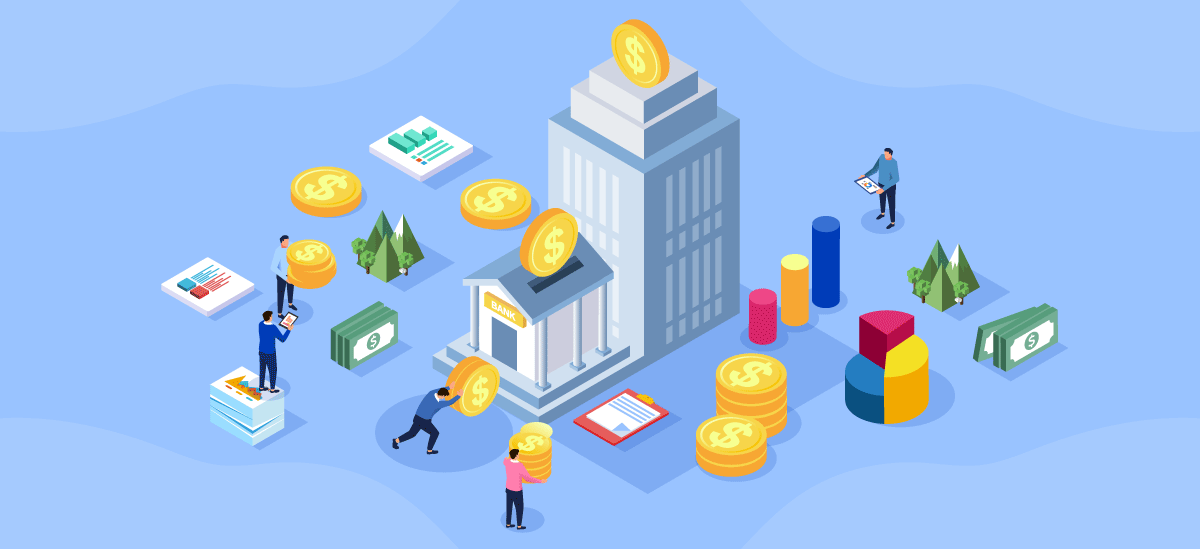
What Is Direct Deposit and How Does It Work?
With a direct deposit, funds are transferred electronically into a bank account — eliminating the need for physical checks or cash transfers. Common examples of direct deposits are having your paycheck or pension deposited into your bank account automatically.
You may not think much about these types of deposits, but it helps to know how direct deposits work and when you may want to use them.
That way, you can feel confident in understanding the process. Here's what you need to know about direct deposits.
What Is Direct Deposit?
A direct deposit is an electronic funds transfer. It moves money through an electronic network from a person or entity paying you, such as an employer or the government, into your checking, savings, or other bank account[1].
The electronic network is called the automated clearing house (ACH). An electronic deposit into your account will usually process more quickly than paper checks. With a direct deposit, the funds are available in your account on the day you receive your payment[1].
A direct deposit can take the place of a paper check. For example, without a direct deposit set up, you'd need to wait for a paper check to arrive in the mail. Then, you'd need to deposit it in your account by going to your bank, an ATM, or using a banking app. Once deposited, the paper check could still take a few business days for the funds to settle in your account.
Today, direct deposit is a common way for employees to get paid. People also use it to get government benefits and tax returns. A 2022 study showed that 93% of workers choose direct deposits, with less than 4% preferring a check[2]. And over 99% of Americans use direct deposit for their monthly Social Security benefits[3].
How Does Direct Deposit Work?
To receive funds through direct deposit, you'll need to provide your bank's name, account number, and routing number to the person or business making the deposit. The depositor enters that information into their payment system, and the funds move into your account on the payment date. The funds clear automatically, so you'll have access to the money almost immediately.
Depending on the depositor and the system they use, it may take anywhere from a day to a few weeks to get set up with direct deposit. So you may not have access right away. Confirm with the depositor how long you may need to wait before direct deposit kicks in.
There are several benefits of using direct deposits, including:
- Convenience: You don't need to visit a bank or ATM to deposit checks. Funds are automatically transferred and almost immediately accessible.
- Timeliness: Direct deposit ensures funds are received on a specific date, which helps eliminate potential delays from waiting for the mail to deliver paper checks.
- Safety: Direct deposits reduce the risk of lost, stolen, or damaged checks. It also helps avoid the potential for forged checks.
- Cost savings: Some banks offer waived monthly service charges or other incentives for accounts receiving direct deposits. And it can mean fewer trips to the bank, saving time and transportation costs.
- Flexibility: Getting funds via direct deposit can help automate your finances, budget, and bill pay.
Popular Uses Of Direct Deposit
Direct deposit has become popular for various reasons, thanks to its efficiency and dependability.
Here are some common uses for direct deposit:
- Payroll: Direct deposit is a convenient way for employees to receive wages directly into their bank accounts from employers rather than waiting for checks to be mailed.
- Government benefits: Government agencies use direct deposit for benefits like Social Security, disability, veterans' benefits, and tax refunds. It's faster, easier, and helps people with mobility challenges or limited bank access.
- Dividend payments: As a shareholder or investor, you may have the option to receive dividends or interest payments via direct deposit into your account.
- Pensions and annuities: Retirees may get pension or annuity payments via direct deposit. This helps ensure they'll have the funds securely and on time, which is important to many on a fixed income.
- Child support: You may have the option to choose direct deposit for child support payments. It can provide a secure, hassle-free option that's also easy to monitor.
How To Set Up Direct Deposit
Whether it's from your employer or another source, the steps for setting up a direct deposit are generally the same and relatively straightforward.
To start receiving your payments via direct deposit payments, here's what you need to do:
- Complete a direct deposit form: You'll need to fill out a form provided by your employer or other payer. For authorization, the form may require personal details, such as your name, address, Social Security number, and signature. Here's an example from PNC's Direct Deposit Enrollment Form.
- Provide account information: Include your bank or credit union routing and account numbers on the direct deposit form to ensure successful processing. These numbers can usually be found within your online banking or bank app and are at the bottom of your checks.
- Attach a voided check: Even if you've provided your account information on the direct deposit form, you may need to attach a voided check from your bank account.
- Confirm the deposit amount: Typically, the deposit amount should match your check amount. However, you might have the option to divide your paycheck deposit into multiple checking and savings accounts.
- Submit the form: Use caution when submitting a direct deposit form with sensitive information. Hand it directly to your payroll department or a secure file transfer if doing it remotely.
Once you've submitted the direct deposit form, check your bank account regularly to ensure expected deposits have been received. If there are discrepancies, contact the depositor immediately.
Find The Right Bank Account For Your Needs
Direct deposit is a convenient, secure, and efficient solution in today's constantly changing financial world.
Whether you're waiting for a paycheck as an employee, expecting monthly benefits as a retiree, a small business owner dispensing payroll, or simply looking to simplify your financial transactions, direct deposit is a step towards a more organized and stress-free monetary future.
Interested in opening a bank account for your direct deposit needs? Learn more about PNC's Virtual Wallet® Checking Account.







